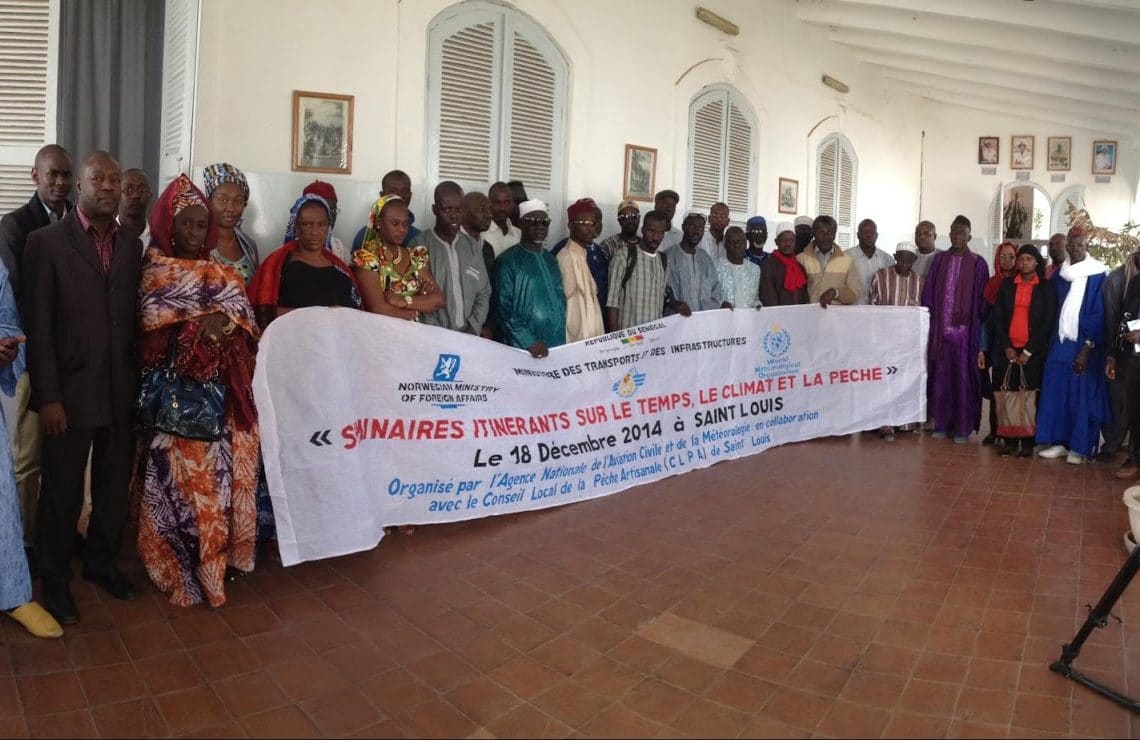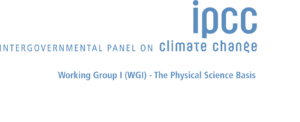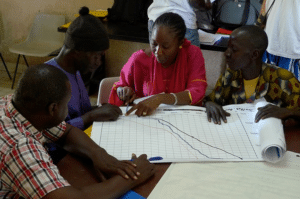Conversation shops in Senegal
- Case studies from IPCC authors
- Conversation shops in Senegal
- Talking your audience’s language in Indonesia
- Energising analogies in Ukraine
- Flooding conversations in Colombia
- The bigger picture in Japan
- Local stories in Mozambique
- Informing policy in the Caribbean
- Stitching in detail in India
- Connecting personally in Argentina
- Neighbourhood interest in the USA
- Unpacking the science in France
This case study is part of a set of case studies commissioned by the IPCC WGI TSU (Intergovernmental Panel on Climate Change, Working Group I Technical Support Unit) and collected by Climate Outreach.
Dr Aïda Diongue Niang shares how she enables others to access crucial information on climate impacts by structuring engagement sessions that allow the participants to direct the conversation.
Dr Aïda Diongue Niang, Météo Sénégal/ANACIM – Author for Sixth Assessment Report, Climate Change 2021: The Physical Science Basis, @meteosenegal, ANACIM Youtube
“Giving open lectures, sometimes on the beach, and sometimes organised by the community, to farmers and fishing communities meant abandoning the Powerpoint slides. Instead, we just have a normal conversation. We’d start by asking them about their perception of the weather and their understanding of climate change, and what changes they have already experienced. In our conversations, we were able to introduce the scientific explanations behind what it was they had been experiencing. This captured their attention. They were really interested in climate change, as whilst they’re really knowledgeable about the changes they have already experienced, they do not necessarily know why.
We also discussed the changes that may be coming for them in the next few years that could affect their activities. We showed them how we could use weather and climate information to cope with the present and future risks posed by climate change.
From this, we then arranged different expert ‘conversation shops’ where small groups could visit different climate experts to talk about specific topics. These included why the monsoon season has experienced a lot of variability, what we expect for the coming season, and what we expect to happen in the coming years. Each group then made a short report of what they found out from the experts. As a result, these communities learned what information was available to help them and how to successfully use this information in their decision making processes.

A workshop with traditional fishing representatives at Saint-Louis Town Hall, Northern Senegal, funded under WMO/MetAgri. Photo credit: Yves-René Kayonga / Dundia Media
We’ve been running these roving seminars for many years and I have been involved several times between 2008 and 2016. I’ve noticed that there is a strong perception, particularly by farmers in the Sahel, that the climate has already changed, and there has also been a surprising acceptance of uncertainties about future change and for interannual and decadal variabilities. More trust has been built with the communities we have worked with which have been integrating the weather and climate information to mitigate weather and climate related risks, and full climate services with codesign of products are being built. However, the challenge is how to scale up the process with all communities in need and across various sectors.”
This case study is a great example of putting the following principles for effective public engagement into practice.
- Principle 1: Be a confident communicator (see Handbook page 6)
- Principle 2: Talk about the real world, not abstract ideas (see Handbook page 8)
- Principle 3: Connect with what matters to your audience (see Handbook page 11)
Find out more about the six principles in our Communications Handbook for IPCC scientists and accompanying webinar.

If you would like to contribute a case study of your public engagement experiences as an IPCC author, we would love to hear from you. Please share your stories with the WGI Technical Support Unit directly.
Reports & guides
Sign up to our newsletter
Thank you for signing up to our newsletter
You should receive a welcome email shortly.
If you do not receive it, please check your spam folder, and mark as 'Not Spam' so our future newsletters go straight to your inbox.

